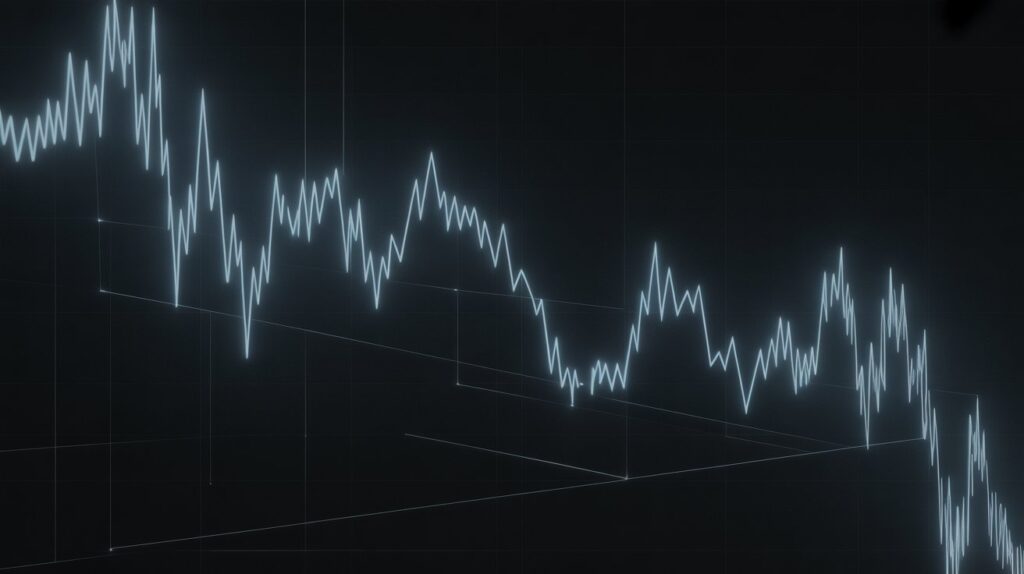The difference between a funded trader and a retail trader isn’t their charts or tools, it’s their mindset. Funded traders master emotional discipline, risk control, and process-driven thinking, allowing them to thrive under firm rules that would crush most retail traders.
In this article, we’ll break down how funded traders think, the psychology behind their decisions, and how you can adopt their professional edge to elevate your own trading.
“The greatest danger in times of turbulence is not the turbulence itself, but to act with yesterday’s logic.” Peter Drucker
Two traders, same setup, same strategy.
One trades from his bedroom, risking his own savings. The other, seated in a prop firm environment or trading funded capital remotely, plays by rules that demand precision and discipline.
One sees freedom. The other sees structure. And within that structure lies mastery.
Why Funded Traders Think Differently
“Discipline is the bridge between goals and accomplishment.” Jim Rohn
Everyone sees the same markets. The same candles. The same opportunities.
Yet only a few perform with calm precision while others spiral in emotion and noise.
Here’s the truth: Mindset, not strategy, separates consistent winners from emotional gamblers.
Funded traders don’t just predict price, they manage themselves. They treat trading like a business, guided by process and discipline. Their edge is psychological, philosophical, and deeply behavioral.
This is how they master markets that break most people.
Risk Management as Paramount
Shift in Perspective: Trading Beyond Personal Capital
When you trade someone else’s money, your psychology changes. Funded traders carry a level of responsibility retail traders often lack. Every decision has consequences not just for profit, but for credibility and longevity.
Trading becomes less about “How much can I make?” and more about “How well can I protect?”
Capital Preservation Focus
The mantra? Preserve the capital. Losing the firm’s account means losing your seat at the table. So funded traders aim for sustainability over excitement. Their long game is consistency, building small, reliable wins that compound trust with the firm and with themselves.
Strict Adherence to Rules
Daily loss limits. Drawdown caps. Risk per trade restrictions.
At first, these may feel restrictive. But the truth is, they’re liberating. They define the playing field, removing guesswork and fear. It’s like having a structure that protects you from yourself.
(See: FTMO Trading Rules).
Long-Term Sustainability
The funded trader mindset thrives on discipline, not dopamine. They understand that slow growth beats reckless gain, and that protecting the downside is the real game of longevity.
Process-Oriented vs. Outcome-Oriented Thinking
Focus on Executing the Plan
Funded traders know their evaluation isn’t just about profit, it’s about execution quality. They’re rewarded for following the plan, not chasing outcomes. You can’t control results, but you can control behavior.
Detachment from Individual Trade Results
Every trader loses. Funded traders just don’t take it personally. Their focus is on consistency, doing the right thing again and again, even after losing.
This emotional neutrality is what trading psychology experts like Mark Douglas write “Trading in the Zone”
Emphasis on Data and Analysis
Funded traders rely on data-driven decision-making, not hunches. They analyze every trade, journal patterns, and refine continuously. This habit removes emotional noise and strengthens intuition through structure.
For deeper learning, read: The Role of Journaling in Trading Psychology.
Continuous Improvement
Every loss is feedback. Every win is refinement. Funded traders embody the growth mindset, treating performance as a mirror for self-mastery.
This never-ending loop of review → reflection → refinement is how mastery compounds.
Discipline and Patience as Cornerstones
Waiting for High-Probability Setups
The average trader forces trades. Funded traders wait. They’ve trained themselves to sit on their hands until the market presents a clear setup. As the saying goes: “Patience pays the bills.”
Avoiding Overtrading
Overtrading breaks accounts and funded traders can’t afford that. Their structure discourages impulsive trades and rewards selective participation. They know that not trading is still a trading decision.
Emotional Control Under Pressure
Trading other people’s money is pressure. Funded traders thrive in it because they’ve built emotional discipline through experience and reflection. They don’t chase revenge trades or overreact to drawdowns.
Related read: The Psychology Behind Revenge Trading and How to Stop.
Viewing Trading as a Profession
Professionalism and Accountability
Funded traders don’t “try their luck.” They run a business. Every rule, journal entry, and trade review is part of their operational discipline. This accountability turns trading into a professional craft, not a gamble.
Continuous Learning and Development
Markets evolve. So do professionals. Funded traders study macroeconomic trends, market structure, and new prop firm models to stay adaptable.
As of 2025, over 60% of successful prop firm traders maintain active education routines (based on proprietary firm data from Topstep and Earn2Trade).
Understanding the Big Picture
They see beyond the chart. While retail traders chase setups, funded traders connect them to global narratives, monetary policy shifts, liquidity cycles, and market psychology. This macro awareness gives their micro decisions context.
Understanding the Metrics and Evaluation
Focus on Key Performance Indicators
Every funded trader is judged by measurable metrics:
- Profit factor
- Drawdown percentage
- Consistency score
- Risk-to-reward ratio
These KPIs become the compass. The goal isn’t to beat the market, it’s to beat yourself.
Adapting to Firm Requirements
Each prop firm has its own rules, evaluation process, and payout structure. The best traders adapt quickly, aligning their strategies to the firm’s expectations. Adaptability is professionalism in motion.
Funded Traders vs. Retail Traders
| Aspect | Funded Traders | Retail Traders |
|---|---|---|
| Capital | Trade with firm capital | Trade with personal savings |
| Risk Management | Strict daily loss and drawdown limits | Often self-imposed, inconsistent |
| Mindset | Process-driven, disciplined | Emotionally reactive, outcome-focused |
| Evaluation | Regular performance metrics | Self-assessment |
Actionable Takeaways for Every Trader
- Adopt a Process-Oriented Mindset: Focus on executing the plan, not the outcome.
- Implement Strict Risk Management: Define your limits and stick to them religiously.
- Cultivate Patience: Wait for your edge. Don’t force trades.
- Commit to Continuous Learning: Markets evolve, so must your approach.
- Treat Trading as a Profession: Journals, reviews, and accountability matter.
If you start thinking like a funded trader, you stop chasing and start mastering.
Conclusion
Funded traders think differently because they must. The responsibility of managing other people’s money forces clarity, structure, and emotional intelligence. But here’s the twist, you don’t need a prop firm to think this way.
If you trade your own account like a funded trader, structured, patient, and process-oriented. You’ll perform with the same calm professionalism.
The mindset isn’t limited to funded traders. It’s the foundation of mastery itself. And when you start thinking like a professional, the markets start treating you like one.
Ready to master your trading mindset?
If you’re serious about building emotional discipline, passing your next funding challenge, and thinking like a funded trader, let’s work together 1-on-1. I’ll help you rewire how you think, trade, and perform under pressure.
Apply for 1:1 Mindset Coaching and start trading from clarity, not chaos.
FAQs
What is a funded trader and how is it different from a retail trader?
A funded trader trades a firm’s capital after passing an evaluation and must follow strict risk and drawdown rules. A retail trader trades their own money with full freedom but carries all the risk. Funded trading rewards discipline. Retail trading rewards survival.
Why is mindset more important than strategy for a funded trader?
Because funded trading is less about finding the perfect strategy and more about following rules under pressure. Most traders fail not from bad entries, but from breaking risk limits, overtrading, or forcing trades when emotions take over. Mindset keeps behavior aligned with rules, which is what actually keeps a funded account alive.
Can a retail trader develop the mindset of a funded trader?
Yes. A retail trader can build a funded-trader mindset by treating capital as protected, following strict risk rules, and judging success by consistency, not profit. What matters isn’t the account size. It’s how seriously you respect drawdown, patience, and process.
How do prop firm traders sustain consistency in 2026?
By combining algorithmic tracking tools, emotional training, and performance reviews offered by modern prop firms.




